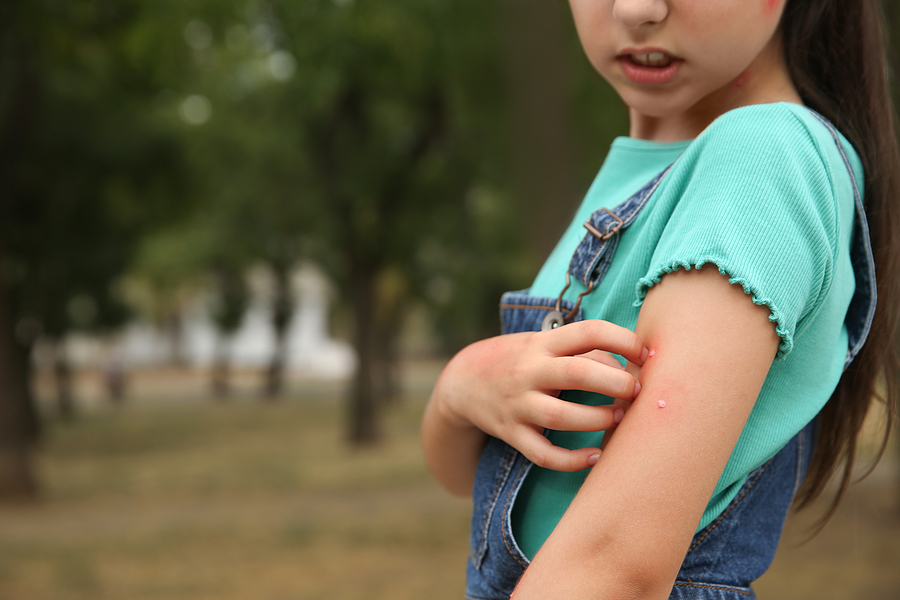Insect Sting & Bite Allergies Are Rising – Here’s What You Need to Know
Posted By:SSG Admin Posted On:07-Jul-2025
Are you finding that insect bites and stings affect you more than in the past? Maybe you’ve developed a new allergy out of the blue, or your existing allergy is worsening. You’re not alone.
Reports show that insect allergies are increasing. It’s estimated that upwards of 7% of the world’s population has an insect allergy. Allergies to bee stings are one of the most common, but hornet and wasp allergies are second at upwards of 3.3%. Upwards of 38% of bee sting allergies occur in beekeepers.
Some allergies are minor, such as a bumpy, itchy mosquito bite. Other allergies are deadly. A fire ant or yellow jacket could trigger anaphylaxis and put your body into a state of shock that requires urgent medical care. It’s important to know why insect allergies are increasing and how to handle new or worsening allergy symptoms and Premium Allergy is here to help.
Why Are Insect Allergies Increasing?
Why are insect allergies increasing? It comes down to several factors.
- Climate Change: Temperatures are increasing. Add the unusual flooding rains that are unlike anything regions have seen in the past, and it’s changing insect patterns. Warmer weather helps insects migrate farther north than they ever have before. An increase or decrease in average rainfall also makes it easier for insects that need those specific conditions. Some insects may seek cooler environments by entering your home.
- Outdoor Activities Increase: When it’s cold, damp, or rainy, people stay inside. Climate change is lengthening some of the warmer seasons. As it warms up and the sun is out more, people get outside and become active. Gardeners head to their backyard or community garden to weed, plant seeds, and harvest crops. Hikers head to the trails. This increases the potential to be bitten or stung.
- Post-COVID Immune Response: Following moderate or severe COVID infections, some people experience immune dysfunction. A three-country study found that COVID-19 and other strains increased rates of asthma and allergic rhinitis. The rates lowered when a person had been vaccinated against COVID at least twice.
Another factor to consider is that people are more likely to self-diagnose their symptoms and seek medical advice. Awareness is a good thing. In the past, someone might not have thought about difficulty breathing being tied to a hornet sting two days earlier.
Sometimes, insect allergy symptoms show up later. Knowing that’s possible makes more people seek medical care, which adds to the data being used to calculate insect allergy prevalence.
Common Insect Allergies – Bites and Stings
When it comes to allergic reactions from insect bites and stings, the most common culprits are:
1. Bees
Bees are fuzzy with typically yellow and black stripes. Honeybees are the worst offenders because of the way they sting. While they can only sting once, their death isn’t in vain. When they sting you, the stinger is attached to a venom sac that continues to pulsate and release the venom into you until the stinger is removed.
There are other types of bees. Carpenter bees aren’t likely to sting, but a queen does possess a stinger and can sting if threatened. The same is true of a bumblebee. Generally, they’re harmless, but they might sting if they feel trapped and threatened.
Sweat bees (Halictidae) are drawn to the moisture on your skin, hence their name. If they feel threatened, they will sting. The venom from a sweat bee sting isn’t plentiful, so they’re not likely to cause a severe reaction. That doesn’t mean you should ignore symptoms like breathing difficulty, dizziness, or hives.
2. Biting Insects
Mosquitoes, black flies, ticks, fleas, and many other biting flies may trigger an allergic reaction. Mosquitoes are one of the more common insect bite allergies, and many people experience the itchy, red, swollen bump that’s a mild reaction.
Severe allergies to mosquito bites can happen. Signs of a moderate allergy are large wheals that become red and itchy and swell past the bite location. Dizziness, hives, throat swelling, and wheezing are signs of severe reactions.
Someone with a flea bite allergy reacts to the flea’s saliva. Swelling, rashes, and blisters are common signs of a mild allergy. Severe allergies are less common.
3. Hornets
Hornets are another insect that stings and causes insect allergies in some people. Unlike bees, hornets can sting repeatedly. Hornets are larger than wasps, at 1 to 1 ½ inches.
One of the most common types in the U.S. is a European hornet, which looks a little like a yellow jacket. Bald-faced hornets are white and black and known to be very aggressive. Hornets may sting even if you’re not a threat.
4. Spiders
Spider venom is another possible allergen, though allergies to spider bites are less common. If you do get bitten by a spider and experience hives and difficulty breathing, seek medical attention.
When possible, get a picture of the spider that bit you and show a doctor. Some spiders, particularly black widows, are poisonous, and antivenom helps.
5. Wasps
Wasps, like hornets, can sting repeatedly. They’re smaller, at less than 1 inch in length.
Wasps come in a variety of colors. Yellow jackets are yellow and black with smooth bodies. Paper wasps are reddish-brown. Mud daubers are shiny black. Those are just a few of the wasps found in the U.S.
They may live in nests hanging from eaves, trees, or decking boards, but they can also live underground in old tunnels. Suppose you had a chipmunk that tunneled near your foundation, and a wasp could turn that abandoned tunnel into a large nest.
Biting insects like mosquitoes, fleas, and ticks usually cause local reactions (itchiness, redness) but can, in rare cases, trigger more widespread allergic responses.
Identifying the Severity of Your Reaction
Many reactions to insect stings and bites are normal and not allergies. They include pain, swelling, and redness. Itching might occur with some bites and stings.
With an allergic reaction, you might find your entire hand swells after being stung on your finger. A bite on your ankle might lead to a swollen foot. Swelling may continue for a couple of days and take 10 days to return to normal. It’s not a medical emergency, but you should see an allergist as soon as you can.
A severe allergic reaction is a medical emergency. Administer epinephrine through your EpiPen or similar, and go to urgent care if you have:
- Confusion
- Difficulty breathing
- Dizziness
- Fainting
- Hives all over your body
- Nausea and vomiting
- Rapid or weak pulse
- Swelling of the face, eyes, lips, or tongue
- Tightness in the chest or throat
- Trouble swallowing
Prevent Stings and Bites
The first step in managing insect bite and sting allergies is to avoid the insects you’re allergic to. If you know you’re allergic to bee stings, wear gloves and long sleeves when gardening. Be mindful of any blooms or blossoms where bees are likely to be.
Don’t walk barefoot in the yard. Even if the grass is mowed, you never know what might be living in the ground.
For wasp or hornet allergies, monitor your home for nests. If you see hornets or wasps flying in and out of the base of a shed, call a professional to remove them.
If you’re eating or drinking outside, have devices around that keep flying insects away. They make battery-powered fans where the fabric or thin plastic blades spin continuously to keep flies and other flying insects off a table.
Don’t drink from a can or bottle. Have a covered cup and straw to keep insects out.
Use DEET or another insect repellent when you’re outside hiking, walking in tall grass, or spending time outside at dawn and dusk when mosquitoes are prevalent.
Work With an Allergist for Long-Term Relief
After any allergic reaction to an insect bite or sting, see an allergist. You want to have the allergy diagnosed and then work on an allergy treatment plan from there.
Premium Allergy and Respiratory Center can help you reduce your symptoms and enjoy being outside, even if insect bites and stings are concerns. Reduce your risk and know how to act if you do experience an emergency after being bitten or stung.
What we don’t want is to see Fresno-area residents hide inside in fear. Schedule an appointment with Dr. Sabry and experience the relief you deserve.





